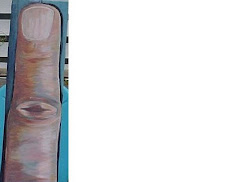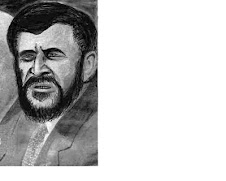 |
| Creation's Destruction is Capitalism's Engine. |
Mandelville's The Fable of the Bees, written in the early 18'th century when it was still okay to refer to collective human endeavor in terms that weren't scornful of compassion, derisive of the natural propensity for Brotherhood, nor intent on twisting the words of the Christ into intolerant hate-speech and war-mongering rhetoric, has a chapter on the "Nature of Society". They apparently knew then that there was a disturbing contrast between what's good for a society, and what's good for the individuals of which it's comprised. And that they're not only not the same thing, they aren't even necessarily compatible.
I am sorry for the borrowing, but promise not to be guilty of that fault any more (Lol), and will now proceed with my argument and demonstrate the gross error of those who imagine that the social virtues and the amiable qualities that are praiseworthy in us, are equally beneficial to the public that are possessed of them, and think that the means of thriving and whatever conduces to the welfare and real happiness of private families must have the same effect upon the whole society. This is what we labor for all along but not successfully, so I hope no one will like a problem the worse for seeing the truth of it proved.
It is certain that the fewer desires a person has and the less they covet, the more easy that person is with themself; the more active one is to supply their own wants and the less they require to be waited upon, the more they will be beloved, and the less trouble you cause to family; the more you love peace and concord, the more charity you have for your neighbor, and the more you shine in the real virtue, there is no doubt but that in a likewise proportion you are more acceptable to god and man.
But let us be just, what benefit can these virtues be, or what earthly good can they do, to promote the wealth, the glory, and the worldly greatness of the nation? None. It is the sensual courtier that sets no limits to his luxury; the fickle strumpet that invents new fashions every week; the haughty duchess that in her equipage, entertainments and her behavior would imitate a princess, the profuse rake and lavish heir that scatters about their money without wit or judgement, buys everything they see, and then either destroys or gives it away the next day; the covetous and perjured villain that squeezes an immense treasure from the tears of widows and orphans and leaves the prodigals money to spend, which, being prodigals, they most certainly will, that are the prey and proper fodder of a full grown leviathan. In other words, the Trumps. Such is the calamitous condition of human affairs and economies that we stand in need of these moral plagues and human monsters for whom all the variety of labor performs, which the skill of humans are capable of inventing in order to procure an honest livelihood to the vast multitudes of working poor, that are required to make a large society function; and it is folly to imagine that great and wealthy nations can subsist, and be at once powerful and polite.
Religion is one thing and trade is another. He that gives most trouble to his neighbors and invents the most labor-intensive manufactures is, right or wrong, the greatest friend to society.
What a bustle is there to be made in several parts of the world, before scarlet or crimson cloth can be produced, what a multiplicity of trades and artifices must be employed! Not only the obvious ones of the woolcombers, sheep-shearers and herdsmen, but the spinners, the weaver, the clothworker, the scowrer, the dyer, the setter, the drawer, and the packer; but others that are more remote and might seem foreign to it: the millwright, the pewterer and the chemist, which yet are all necessary as well as a great number of other handicrafts to have the tools, utensils and other implements belonging to the trades names: But all these things used to done in the domestic economy, and were performed without extraordinary fatigue or danger; the most frightful prospect is left behind when we reflect on the toil and hazard that are to be undergone when we export these skills abroad, what vast seas we are to go over, the different climates we are to endure and the several nations we must be obliged to for their execution.
When we are thoroughly acquainted with all the variety of toil and labor, the hardship and calamities that must be undergone to compass the ends we seek to fulfill our desires, and we consider the vast risks and perils that are run in those voyages, and the few of them that are ever made but at the expense, not only of the health and welfare but even the lives of many: when we are acquainted with, and duly consider the things gone through, well it then seems scarcely possible to conceive a tyrant so inhuman and void of shame, that beholding things in the same view, he should exact such terrible services from his innocent slaves; and at the same time dare to admit, that he did it for no other reason, than the satisfaction a customer receives from having a garment made of scarlet or crimson, a tie of silk or a coat of Vicuna. To what height of luxury must a nation be arrived, where not only the State's officers but its military, even the private citizens, have such impudent desires!
But from a different perspective, if we look at all those labors as so many voluntary actions, belonging to disparate callings and occupation, that people go to classes and earn degrees in order to earn a livelihood, and in which every one works for themselves, no matter how much they may seem to labor for others; if we consider that many must undergo the greatest hardships, so we find that the labor of the poor, is so far from being a burden and an imposition upon them; that to have employment is a blessing, which in their pleas to heaven they pray for, one would feel compelled to believe that to procure it for the generality of them should be the greatest care of every legislature.
As children and even infants are the apes of others, all teenagers burn with an ardent desire to become men and women, and often seem ridiculous by their impatient endeavors to appear to be what everybody sees they are not; all large societies are not a little indebted to this folly for the perpetuity or at least the long continuance of trades once established, and why it is such a blow when machines replicate skills cherished, nourished and passed down generation after generation only to have their treasured know-how usurped by mechanized hardware.
Yet we are never sorry for having inconsiderately considerably increased the necessities of life without any necessity. Not a penny does one want to pay for prescription drugs needed to save your very life or cure a disabling malady; but entire paychecks, car's repo'd, homes foreclosed on to pay for the recreational variety the overuse of which necessitated the prescription purchase in the first place.
Generational fortunes have been generated by the demand for coffee and tea, cocoa and coca, cinnamon and nutmeg, but a half cent raise in the price to transport your wheat crop can ruin you, the slim profit margins leaving only small potatoes and squashed hopes, the bean counters stalking every penny you leave on the table. What a vast amount of labor is done in the world to the maintenance of thousands of families that totally depend on the silly and odious customs of smoking cigarettes and chawin' tobacky. Addiction after all, is good for business.
As is disaster. It is always followed by a boom of employment for the bricklayers and sheet-rockers, floor layers and the window glaziers, the carpenters and wiring crews. In rebuilding what is lost and destroyed in the storms, fires, floods and inundations, it should not be surprising for a polity that nonchalantly basks in the benefits showered upon it by the outsize profits to be made by arming people to the teeth with the output of your State-funded arms merchants, and then goading them to start using them on one another, that the same system is, far from trying to halt climate change, sees it instead as a profit-generating bonanza. It's indeed a wonder to behold the same people who cheer the creative destruction called capitalism appalled at the very idea that natural disasters, the epitome of destruction, result in a considerable amount of trade being generated; the truth of which would be obvious were one to enumerate all the advantages and benefits that accrue to the economy because of them.
It is the argument in reverse with which we started. Just as individual piety, were everyone to act so, would be the ruination of the economy of the nation; the individual's suffering and loss, is for the society as a whole, a boon, for the very obvious reason that, like the gun clutched so determinedly in Charlton Heston's fist, the monies so determinedly clung onto by the victims before disaster, are forcibly released. Those monies, from both the victims and their insurers, cascade into the economic stream, much the same as pouring savings into the stock market transfers wealth, and churns the economy, a large-scale disaster does quite the same, forcing home-owners and Insurance Companies to loosen the spigots of their savings and put them to work, and in a far more effective manner for the economy as a whole than plowing those same savings into stocks would do.
All of which is to say, lest you were were wondering, is that the policies we currently pursue, the connection between which may appear haphazard and obscure, are quite simple and driven by our own desires. It's just that it's not necessarily propelled by our own personal desires, which die with us, but society's, which is immortal. Neither the kindly affections and friendly qualities that are natural to people, nor the real virtues we are capable of acquiring by reason and self-denial, are the foundation of Society; but that which we call evil in this world, moral as well as natural, is the grand principle that makes us sociable creatures, the solid basis, the life and support of all trades and occupations without exception: it is there we must look for the true origin of all our arts and sciences; and that moment when evil ceases, society must be spoiled, if not entirely dissolved. And capitalism, being what drives the most evil of empires, is the most dexterous at managing the profitable exploitation of private vices, with the aid of well-bought politicians and well-armed Peace officers, into public benefits ... and then into public burdens (such as an atmosphere burdened with CO2, an ocean burdened with excess heat and indissoluble plastic, and Superfund sites burdened with undisposable radioactive waste ... after all, evil must forge a hell to really rate the name).



















































No comments:
Post a Comment